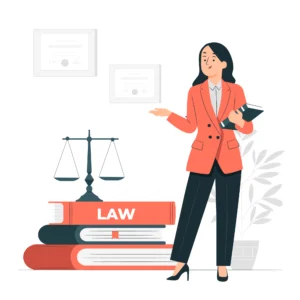🚨Legal Threats from Upstate Remedial Services?
Legal Threats from Upstate Remedial Services? Wish there was a way to make the calls stop? Threatening you with legal action? Has Upstate Remedial Services ever used abusive or profane language when speaking with you on the phone? If so, Upstate Remedial Services may be violating your legal rights. Stop Upstate Remedial Services harassment.
The Fair Debt Collection Practices Act, also known as the FDCPA, protects consumers’ rights in the context of debt collection. In other words, debt collectors must adhere to a certain set of rules when they are pursuing consumers who owe money. If a collector violates the FDCPA, you can sue the collector in court. The law allows consumers who have been victims of Upstate Remedial Services debt collection harassment to get the calls to stop in addition to recover statutory damages of up to $1,000, plus attorney fees and court costs.
💢Legal Threats Under the FDCPA: Understanding Your Rights and Protections
The Fair Debt Collection Practices Act (FDCPA) is a federal law designed to protect consumers from abusive and unfair debt collection practices. Among the many protections it provides, the FDCPA specifically addresses the issue of legal threats made by debt collectors. Understanding your rights under the FDCPA can help you recognize and respond appropriately to improper or illegal threats made by debt collectors.
🔎What Constitutes a Legal Threat?
A legal threat occurs when a debt collector indicates that they will take legal action against you, such as filing a lawsuit to collect a debt. While Upstate Remedial Services are allowed to pursue legal action if they intend to follow through, the FDCPA places strict limits on when and how these threats can be made. Key points include:
- False Threats: Debt collectors cannot threaten legal action unless they actually intend to take such action and have the legal authority to do so.
- Misleading Statements: Collectors cannot mislead or deceive you about the likelihood or timing of legal action.
- Unauthorized Actions: Collectors cannot threaten actions that they have no legal right to take, such as garnishing your wages without a court order.
📜Examples of Illegal Legal Threats
Under the FDCPA, the following actions by Upstate Remedial Services are considered illegal:
- False Representation: A collector falsely claims they will file a lawsuit if they have no intention of doing so.
- Exaggerated Consequences: A collector exaggerates the legal consequences of not paying the debt, such as claiming you will be arrested or your property will be seized without proper legal proceedings.
- Unsubstantiated Threats: A collector threatens to take legal action in a state where they have no authority to file lawsuits.
- Immediate Legal Action: A collector claims that legal action will occur immediately when, in reality, legal processes take time and involve specific procedures.
- Unauthorized Wage Garnishment: A collector threatens to garnish your wages without first obtaining a court judgment.
💡Recognizing and Responding to Illegal Legal Threats
If you believe Upstate Remedial Services is making illegal legal threats, it’s important to know how to respond and protect your rights:
- Document Everything: Keep detailed records of all communications with debt collectors, including phone calls, letters, emails, and any threats made. This documentation can be crucial if you need to file a complaint or take legal action.
- Request Validation of Debt: Within 30 days of the initial contact, you have the right to request written verification of the debt. This can help ensure that the debt is legitimate and that the collector has the authority to collect it.
- Understand Your Rights: Familiarize yourself with the FDCPA and your rights under the law. Knowledge is your best defense against abusive practices.
- Send a Cease and Desist Letter: If you want to stop all communication from the collector, you can send a written request for them to cease contact. After receiving your letter, the collector can only contact you to confirm they will stop communications or to inform you of specific actions they are taking, such as filing a lawsuit.
- Seek Legal Advice: If you believe your rights have been violated, consider consulting with a consumer protection attorney. They can provide guidance, help you understand your options, and represent you if you decide to take legal action against the debt collector.
- File a Complaint: You can file a complaint with the (CFPB), the Federal Trade Commission (FTC), and your state’s attorney general. These agencies can investigate and take action against abusive debt collectors.
📋Case Study: Illegal Legal Threats and the FDCPA
Consider the case of Sarah, who received a call from Upstate Remedial Services claiming she owed $2,000 on an old credit card debt. The collector threatened to file a lawsuit immediately if she didn’t pay the full amount within 24 hours. Feeling pressured and anxious, Sarah asked for details about the debt, but the collector refused to provide any information and continued to insist on immediate payment.
Recognizing the pressure tactics, Sarah documented the call and sent a request for debt validation. When Upstate Remedial Services continued to make threats without providing the requested information, Sarah consulted with a consumer protection attorney. The attorney confirmed that the threats violated the FDCPA and helped Sarah file a complaint with the CFPB and FTC. The agencies investigated, and Upstate Remedial Services faced penalties for their illegal practices.
🎯Preventing and Addressing Upstate Remedial Services Debt Collection Harassment
To protect yourself from illegal legal threats and other forms of Upstate Remedial Services debt collection harassment, consider the following proactive steps:
- Educate Yourself: Stay informed about your rights under the FDCPA and any state-specific laws that offer additional protections. Resources are available online, through consumer protection agencies, and from legal professionals.
- Stay Calm and Professional: If contacted by a debt collector, remain calm and professional. Do not let threats or intimidation tactics provoke an emotional response. Request all information in writing and take time to review it.
- Negotiate Wisely: If you decide to negotiate with the debt collector, do so carefully. Understand your financial situation and what you can realistically afford to pay. Document all agreements and make sure any settlements are confirmed in writing before making payments.
- Use Certified Mail: When sending requests or communications to debt collectors, use certified mail with a return receipt. This provides proof that your letters were received and can be valuable if disputes arise.
- Monitor Your Credit Report: Regularly check your credit report for any inaccuracies or signs of fraudulent activity. You are entitled to a free credit report from each of the three major credit bureaus once a year through AnnualCreditReport.com.

🏷️Conclusion
Legal threats from Upstate Remedial Services can be intimidating, but understanding your rights under the FDCPA empowers you to respond appropriately and protect yourself from abusive practices. Remember that debt collectors must follow the law, and false or misleading threats are not only unethical but also illegal. By staying informed, documenting interactions, and seeking professional advice when needed, you can navigate debt collection challenges and safeguard your financial well-being. If you encounter illegal legal threats, do not hesitate to take action by filing complaints and pursuing legal recourse to hold abusive debt collectors accountable.
🔍Who are Upstate Remedial Services?
According to their website, Upstate Remedial Management Inc. is a up and coming receivable management company focused on medical, commercial, and credit card debt. At Upstate Remedial Management Inc., we are industry leading in customer service and focused on changing the way consumers think about companies in this industry. We strive to give the consumer the best possible experience as they go through the process while superseding our clients’ expectations.
🛡Address
100 Boxart St
Suite 2174
Rochester, NY 14612
Phone# 585-450-0676
Fax# 585-672-1576
🏛️About Us
Consumer Rights Law Firm, PLLC is a law firm that specializes in helping clients who are facing Upstate Remedial Services harassment from debt collectors. If you suspect that your debt collection rights are being trampled upon, contact our office to begin the process to stop the harassment you may currently be receiving from Upstate Remedial Services agency. Our office has been assisting consumers since 2010, and we have an A+ rating with the Better Business Bureau.
Call us at 877-700-5790 for immediate assistance.
🏆Success Stories
“I was terrified of Upstate Remedial Services. They made me feel like a criminal, even though I was trying to resolve a legitimate debt. Consumer Rights Law Firm PLLC treated me with respect and compassion. They understood my situation and didn’t judge me. They explained the legal process in a way that I could understand, and they were always available to answer my questions. They truly cared about helping me, and that made all the difference.”
“I tried dealing with Upstate Remedial Services myself, but it was a complete waste of time. They just ignored my requests and continued their harassing calls. Consumer Rights Law Firm PLLC got results quickly. Within a week of hiring them, the calls stopped. They were incredibly efficient and professional. I wish I had contacted them sooner. Don’t waste your time trying to fight these companies on your own. Hire Consumer Rights Law Firm PLLC!”
“The team at Consumer Rights Law Firm PLLC is incredibly knowledgeable and experienced. They were able to identify multiple violations of the FDCPA by Upstate Remedial Services that I never would have noticed on my own. They used this knowledge to build a strong case and get me a favorable outcome. I was impressed by their attention to detail and their commitment to protecting my rights. If you’re being harassed by a debt collector, don’t hesitate to contact them.”



